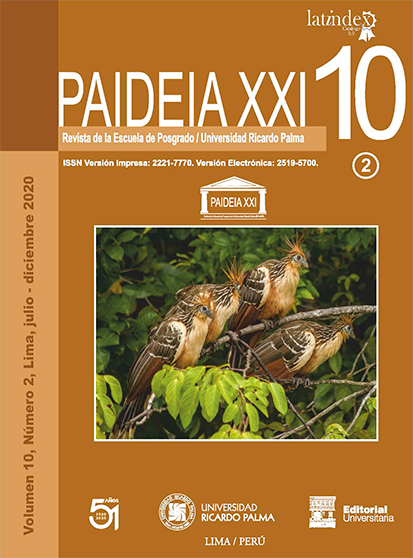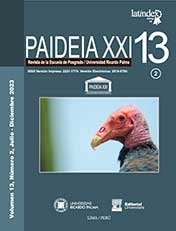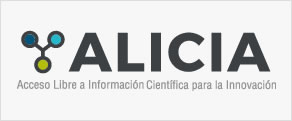HERMENEUTIC OF METHODOLOGICAL CRITERIA IN THE RESEARCH FORMATIVE OF UNIVERSITY TEACHERS
DOI:
https://doi.org/10.31381/paideia.v10i2.3418Abstract
This investigation aimed to evaluate the hermeneutics of methodological criteria in the research training of university teachers. The study was conducted from February to March 2020 at the National University ¨San Luis Gonzaga¨ in Ica, Peru. Eight university teachers were selected from a random probabilistic sample, considering learning through evaluations related to four methodological criteria: 1) operationalized variable selection to be investigated, 2) scientifi c research approach to be seeking, 3) recognized methodological structure, and 4) potential values of interpretation for scientifi c research. Five evaluation points were assigned to each criterion, and three categories of punctuation intervals were recognized: 1) 12-14, 2) 15-17, and 3) 18-20 being the latter an excellent value. These values were evaluated simultaneously using a psycho-labor test of speed and scale test of conceptual identifi cation using the correspondence between columns. The average result was 15.16 points for university teachers, which was described as a low grade where no statistically signifi cant differences were found (F = 4.02; P = 0.05). The result was considered in the category of the non-excellence score. The percentages obtained for scientific writing and cognitive interpretation were low: 32.5% and 25.0%, respectively. It was concluded that the hermeneutics of methodological criteria in the research training of university teachers presented certain deficiencies and that revision of conceptual instructions is required to further contribute to the development of learning in university teachers.
Key words: assessment evaluative – instruction – learning – methodological interpretation – teacher training












